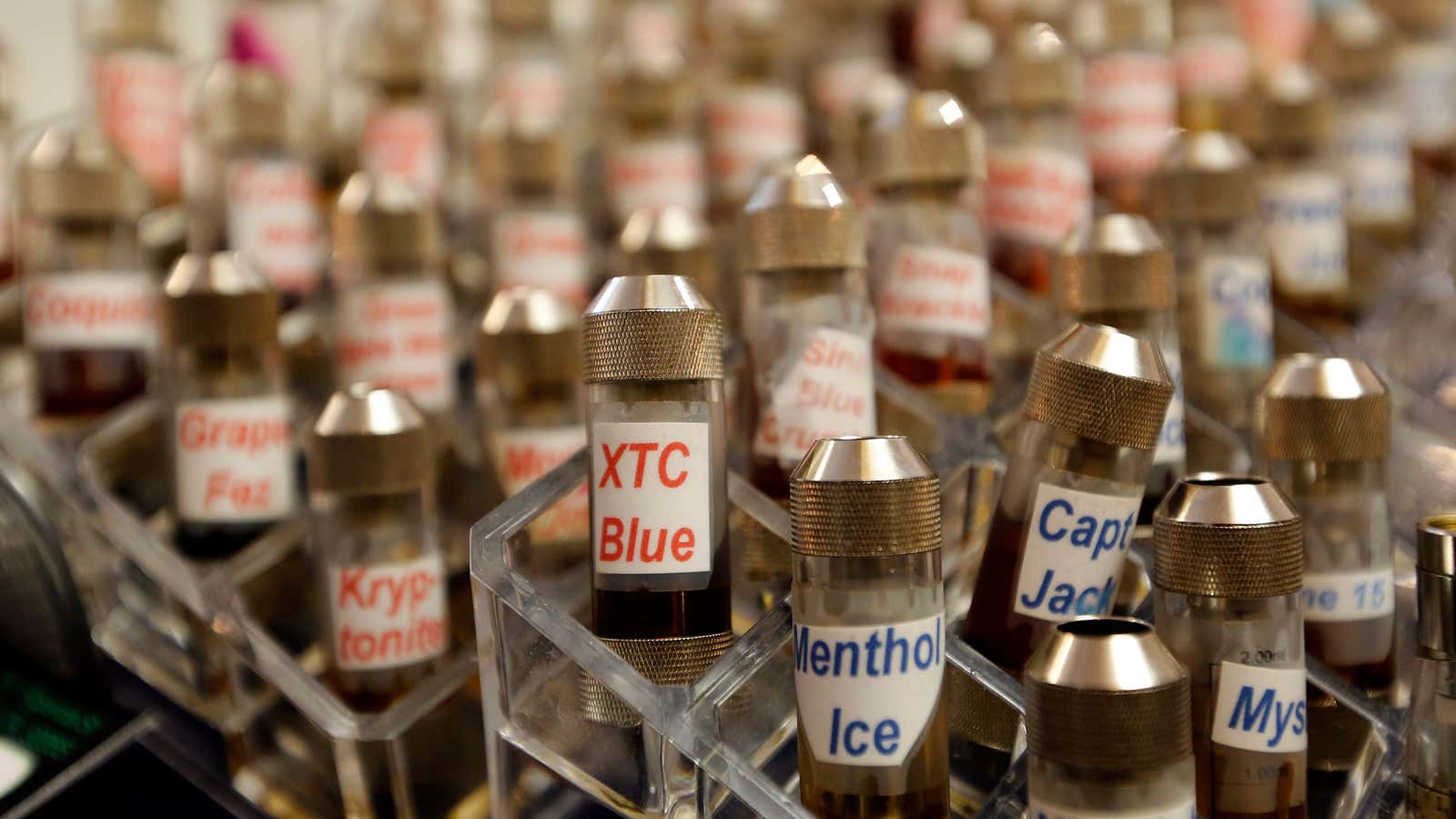Today (Nov. 13) Juul announced it will no longer sell four of its flavored e-cigarette cartridges in stores, and will discontinue using its Facebook and Instagram accounts in the US. It will keep selling the cartridges on its website, which asks users to verify that they are at least 21 years old.
According to a company press release, Juul will stop selling cucumber, mango, creme, and fruit flavors in stores or gas stations. However, it will continue to sell mint, menthol, and tobacco flavors, because those are already sold as tasting like “cigarettes.”
The announcement follows weeks of the US Food and Drug Administration (FDA) putting pressure on e-cigarette companies to figure out how to stop teens from using them. In September, the regulatory agency announced that e-cigarette companies had 60-day period to solve the problem; last week, the New York Times reported (paywall) that the FDA was planning to ban sales of these flavored cartridges across the US when the grace period ended on Nov. 11.
Vaping is hugely popular with teens. In the US, between 9.5% of eighth graders and 16.2% of high-school seniors had used e-cigarettes in the past 30 days. According to the New York Times, unpublished government data suggest some 3 million middle- and high-school students vaped in 2017.
The sweet flavor cartridges available for these non-tobacco products are especially appealing to adolescents, and teens who smoke e-cigarettes are more likely to switch over to cigarettes after as few as six months. There are over 7,000 different flavors (paywall), some with names like “candy,” “cake,” or even “appletini” or “mystery mix.”
Even beyond the fact that these sweet flavors can hook teens on nicotine is the reality that the chemicals that create the flavors can themselves be harmful. One study published earlier this year found some of these flavorings can irritate and inflame white blood cells, which could cause asthma, chronic obstructive pulmonary disease, or tooth damage. In addition, the chemicals listed on the packaging of vape cartridges may not tell the whole story: another study from this year found that that the chemical makeup of these flavorings form new compounds unlisted on ingredient labels when mixed with the solvent used to smoke them.
